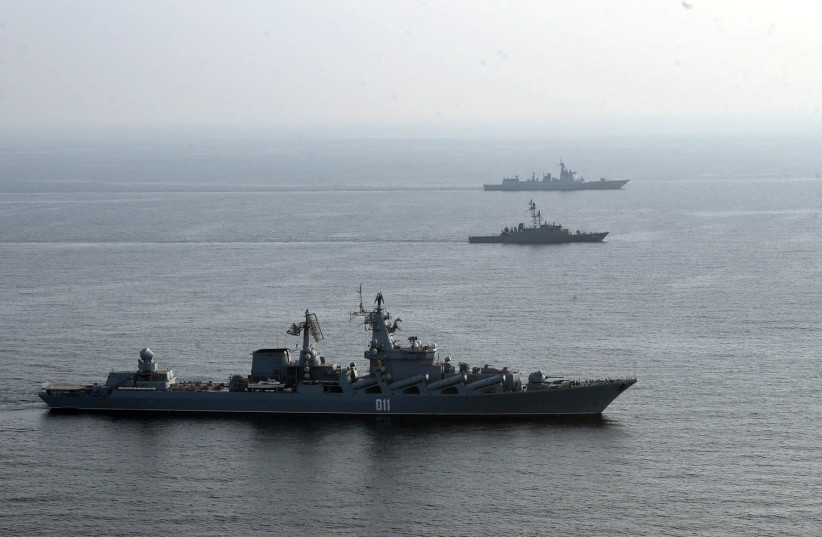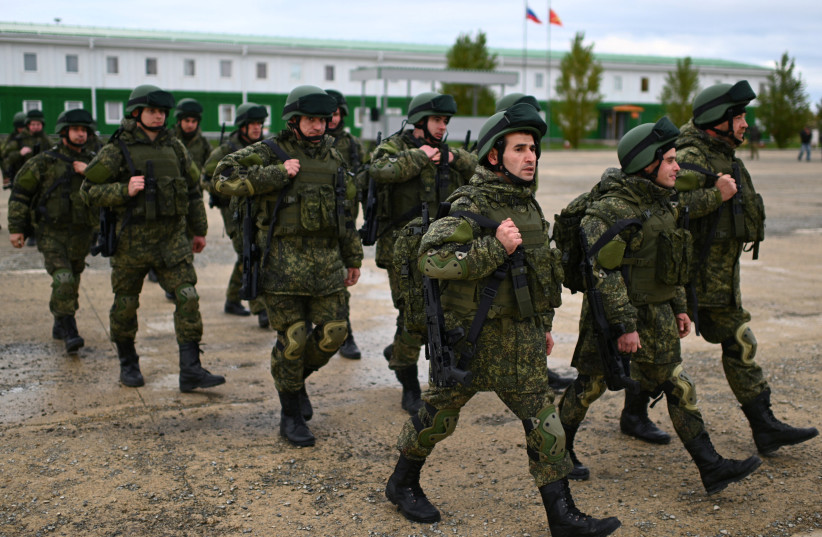Reports that China is increasing military spending by an alarming 7% this year while warning about threats, as well as the visit by Russia’s defense minister to Russian troops, shows a new international alliance taking shape.
This is not the one proposed in the 1990s by then-US president George H.W. Bush; not one that will replace the US-led world order that dominated back then. However, it will be stretching its wings, like an animal that was slumbering.
What this means is that if, in the last decades, there was a question about US-China or US-Russia competition, today it is clear what is happening; the chips are down. Beijing no longer pretends it is going to just be an economic power, quietly moving into the vacuum left by declining Western power in Asia, Africa and the Americas. China will now be more assertive.
This is akin to the way the US emerged in the last century, initially as an economic power, but then quickly assuming world power status. China has been biding its time, quietly moving forward without trying to provoke the alarm.
Beijing’s list of controversies with the West is growing though. Some are conflicts over small islands and atolls that China has been developing off its coast. Others relate to the giant Asian country’s role in the Gulf and in Africa. Overall, the picture is clear: An assertive China will need more ships and more investment in its armed forces.

The West will also need to rapidly re-arm itself and work with allies across the globe. This has come through in Italy-India and Italy-UAE ties, as well as visits by high-level US defense officials to the Middle East last week and this week, and joint training across the Pacific and Middle East. All these small moves take on more immediacy today.
What do the stories tell us?
China is plowing some $225 billion into its defense budget; the US budget is reportedly four times as large. But perhaps Beijing is building more platforms and hoping to use an economy of scale to put together more weapons, rather than the gold-plated US procurement programs that go for expensive systems like the F-35 or Global hawks or new stealthy bombers.
Meaning, while the US is plowing money into the war in Ukraine, this investment also makes it back to American defense manufacturers. Reports have claimed that Europe will have to rearm and replace munitions being sent to the beleaguered country. The writing is thus on the wall – even if the US defense budget is four times as large, it takes more money to build F-35s in the US, and things are simply more costly.
China, meanwhile, can build an aircraft carrier at a fraction of the cost. And even if one Chinese ship is not superior to its Western counterpart, it is building so many that it may not matter.
It’s important to note that China’s increased spending comes as its growth slows and its demographics are in decline. There are fewer children in the world’s most populous country of over 1.4 billion, even after it abandoned its “one-child” policy. Soon, both population and growth will decline, and China will be left with a massive armed force.
Countries don’t just build armies and not use them. The last century teaches us that when countries build large armies, they generally will use them somewhere eventually.
Meanwhile, in Russia, state media reported on Sunday that “Russian Defense Minister Sergey Shoigu held a meeting with the commanders of groups of troops in the zone of Russia’s special military operation,” checking in on Russia’s success on the operational front.
“Shoigu heard commanders’ reports on the current situation in their areas of responsibility, as well as plans for future actions,” the statement reads.
This means that Russia still doesn’t view the war in Ukraine as the defeat that Western analysts projected it to be for Moscow. It continues to destroy Ukrainian towns and areas and pound front-line positions.

This is a cynical war designed to make people suffer.
While it isn’t advancing, it also isn’t retreating. As the war is fought entirely on Ukraine’s soil, Russia is losing forces but it uses mercenaries – the poor and minorities – to man the front lines. This is a cynical war designed to make people suffer.
Moscow has now gambled on attrition. Western commentators are betting that providing Ukraine with more weapons, such as howitzers and tanks can help it pose a significant threat to Russian forces, and perhaps even launch strikes on Crimea, an area Moscow annexed in 2014.
The Russian strategy in Ukraine is designed to grind it down and set the country back many years. Russia no longer cares if Ukraine is entirely in the Western camp; this is not designed to keep Ukraine “neutral” or away from NATO. To do that, Russia is working with Turkey to keep Finland and Sweden from joining the alliance.
Moscow still has more cards to play. Russia’s overall belief is that the West is in decline, and Russia’s leader believes that all Moscow has to do is hold out until that happens. This is attrition on the downward slope, competing to see who will sink slower. Perhaps Moscow thinks the arc of time and history will bend in such a way that eventually the West will clash with China and then Russia’s own hollow economy and hollow policies will be saved by third parties in Asia.
Russia has spent the last two decades preparing to confront the West. It wanted a rematch to the Kosovo conflict, where it felt humiliated as the West weakened its ally, Serbia. Now, Moscow wants to show that it can do to Ukraine what was done to Belgrade, hoping on the way to rewrite the rules of international hegemonic power.
